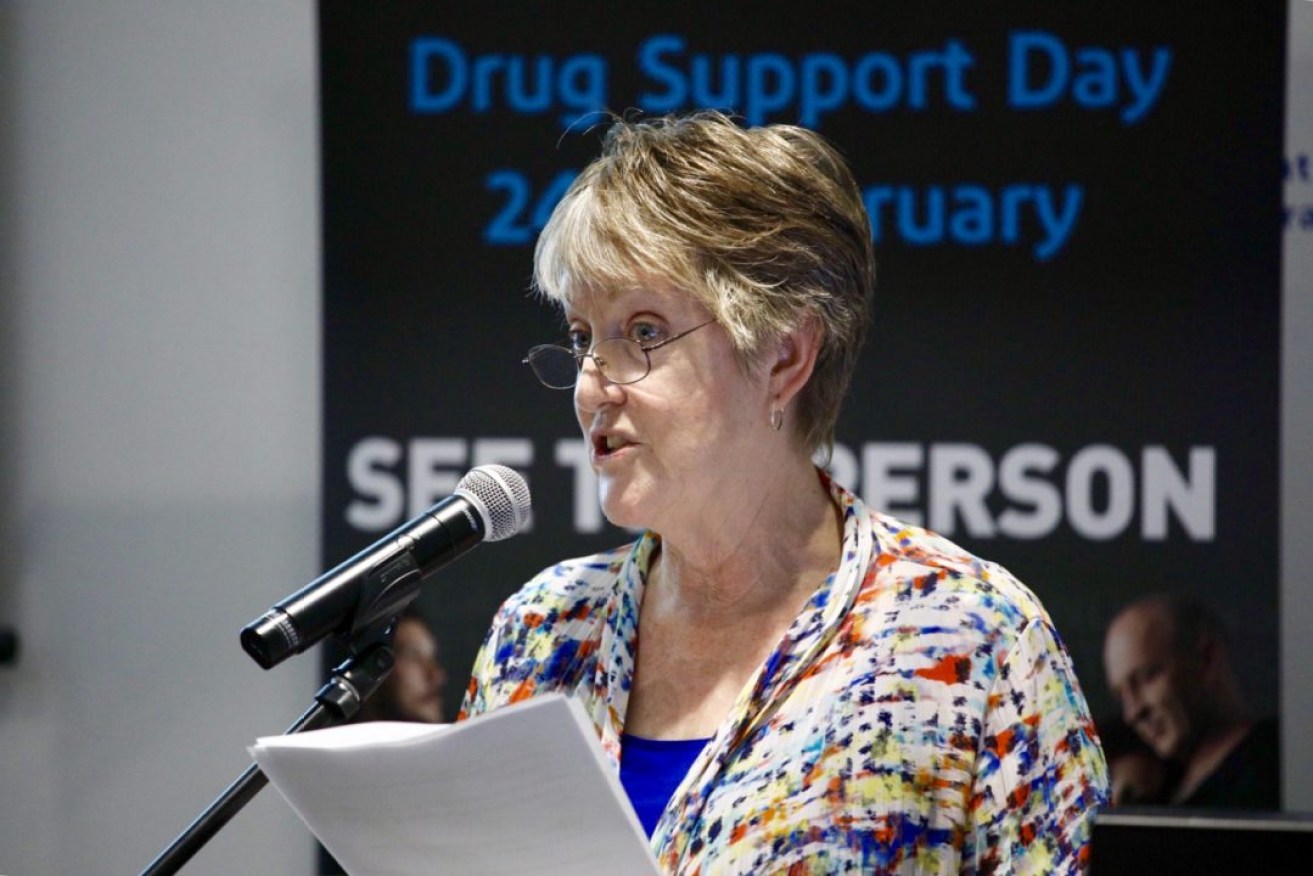Vulnerable children must be able to attend school: guardian
Children and young people in residential care homes who are unable to receive visits from family members as a precaution against the spread of coronavirus must be able to continue going to school, South Australia’s guardian for children says.

Guardian for Children and Young People Penny Wright. Photo: Tony Lewis/InDaily
The Department for Child Protection has temporarily stopped “almost all” face-to-face access between children under guardianship orders and outside visitors, including their family, as a means of combatting the spread of COVID-19.
The department says family members can only visit children in care “where reunification is imminent”.
It follows a decision by the Education Department to keep schools open for Term 2 in the interests of children of essential health workers and those categorised as “vulnerable”, who would otherwise find it challenging to learn from home.
Guardian Penny Wright, who advocates on behalf of children in care and in youth detention, told InDaily she “strongly endorsed” the decision to keep schools open.
She said for many of the 423 South Australian children in residential care, schools provided a “refuge” and “safe place” for them to connect with other young people outside their living environment.
“For those children, the stimulation, the connection with teachers and friends is really important, and it’s especially the case for those children who live in residential care,” she said.
“Relationships are really important and often those children have very strong relationships with their teachers.
“It also supports their carers for children to have stimulation and to get as much education as they can.”
Wright said her office had received several phone calls from children and young people in residential care who were “really concerned” about not being able to maintain contact with their family members.
“Some of them have been confused because on one hand their face-to-face contact with family or siblings has been reduced and yet they’re still able to go to school,” she said.
“That’s something that we have been trying to help them understand because I think there’s still a lot of confusion in the community about the way we’re all trying to adapt to these circumstances.”
Not having face-to-face contact with family members or other visitors is also expected to take a toll on young people’s mental health during the coronavirus pandemic.
Wright said her office was “really conscious” that children in care were “frightened” and “unsure” about the impacts of coronavirus and when they would next be able to see their family members in-person.
She said it was important for residential care homes to encourage the use of telephones or other technologies to keep children connected with their family members.
“It’s important for kids in care to remain as connected as possible with the people they care about, otherwise they will be fearful of not only their own health and safety but potentially that of their families as well,” she said.
“We certainly have been getting calls from children who are frightened or unsure, so it’s really important that as well as looking after their physical safety as much as possible we’re doing as much as possible to support their mental health as well.”
In a statement, Department for Child Protection chief executive Cathy Taylor said alternative methods of contact such as telephone and video calls, letters and photographs would be used “wherever possible to ensure children and young people remain connected to those people they usually see at face-to-face visits”.
“Face-to-face contact visits will resume as soon as it is safe to do so,” she said.
“It is important to note that these changes do not extend to key functions of the Department, including undertaking child protection assessments and investigations, supporting placements for children in care (foster and kin), caring for children in residential care and operating a 24/7 call centre to receive notifications of abuse and respond in a crisis manner where necessary.”
Taylor said 44 new residential care workers would start training today to help ease workforce pressure in the event where a staff member tests positive for COVID-19.
She said the Department had also secured additional housing stock to allow children and young people to be temporarily relocated if another person at their residential group home contracts the virus.
If a child does test positive, they would be taken directly to hospital to receive care.
Meanwhile, children and young people detained at the Adelaide Youth Training Centre are still able to receive outside visitors and attend school at the centre.
“For many of these children and young people, visits from their families and other supports are a lifeline, especially for those young people who are detained for a long period,” Wright said.
“I think it’s quite a courageous decision for youth justice to continue that for the time being as long as the safeguards are in place.
“They (youth justice and child protection services) have huge jobs ahead of them to maintain the physical safety of the children and young people and also their staff, but also to maintain their wellbeing and their mental health as well.”
Children in care or detention can continue to speak to Office of the Guardian of Children and Young People advocates via the phone during the COVID-19 crisis.
Want to comment?
Send us an email, making it clear which story you’re commenting on and including your full name (required for publication) and phone number (only for verification purposes). Please put “Reader views” in the subject.
We’ll publish the best comments in a regular “Reader Views” post. Your comments can be brief, or we can accept up to 350 words, or thereabouts.




